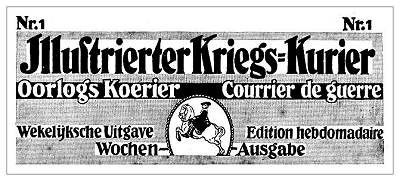
A Collection of Photos from a German International News Magazine
Illustrierte Kriegs Kurier


The 'Illustrierte Kriegs Kurier' (the Illustrated War Courier) was a lavishly illustrated German news magazine intended for foreign distribution. It was printed in German, French, Dutch and for a time in English. Not only was it meant to be sold in the occupied territories of France and Belgium, but in neutral countries as well : Switzerland, The Netherlands and the USA.
Compared to similar British and French publications, the Kriegs Kurier was remarkably sedate in tone and lacking in overt propaganda for the German cause. The magazine abounds in photographs of soldiers going about the business of war and Occupation, but without any of the nationalist and jingoist patriotism which characterized so many of the British weeklies. There are a number of photos of dead and wounded, mostly Russian but many more of German and Austrian soldiers fraternizing with the occupied populations, doling out food and repairing war damaged buildings and infrastructure. Emphasis is also put on sanitation and medical care in the German army and on the well-treatment of prisoners of war.
The capture of Antwerp was a victory for Germany of course and as such, it was covered extensively in the Kriegs Kurier. There are few photos of the destruction caused by the fighting and fewer if none of actual combat. Nevertheless there are a number of very interesting photographs worth reproducing, including several of Austrian troops.
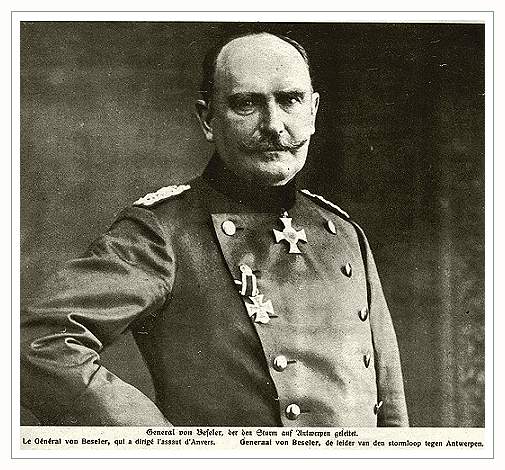
The German general commanding the assault on Antwerp : Hans von Beseler
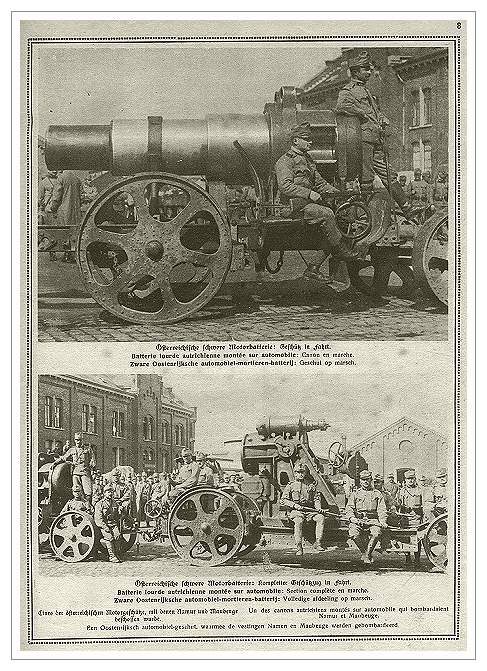
Austrian Siege Artillery : large bore Skoda guns
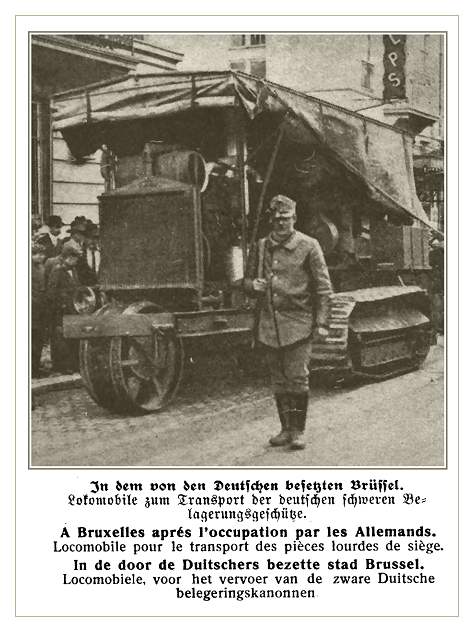
Siege Artillery being transported through Brussels

Another photo of Austrian artillery at Antwerp
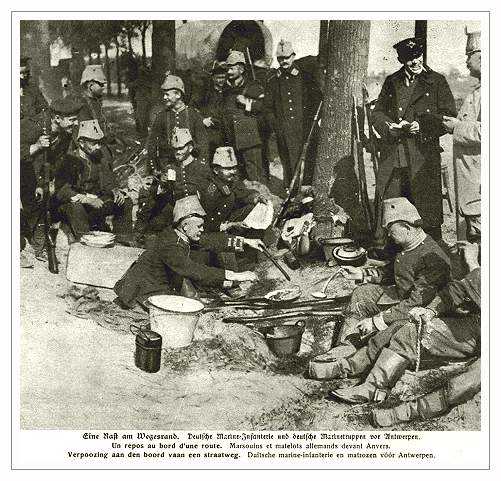
Taking time out for a meal
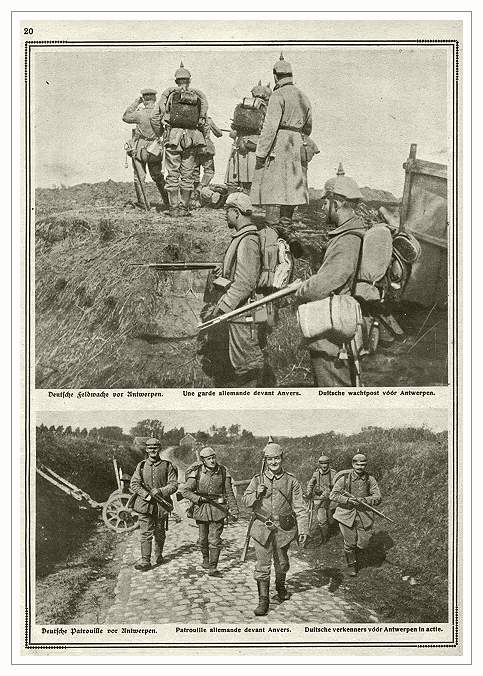
German Patrols

German Troops Resting
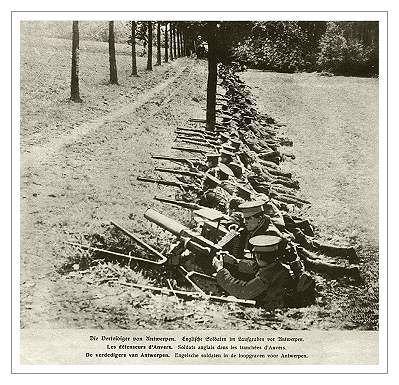
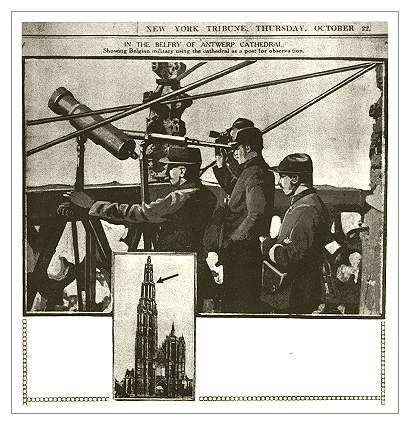
Belgian Observers using the Antwerp Cathedral as Observation Point.
This photograph was taken from the New York Tribune and was intended to prove the German point that the Allies themselves were responsible for damage done to church towers by using them as military observtion points